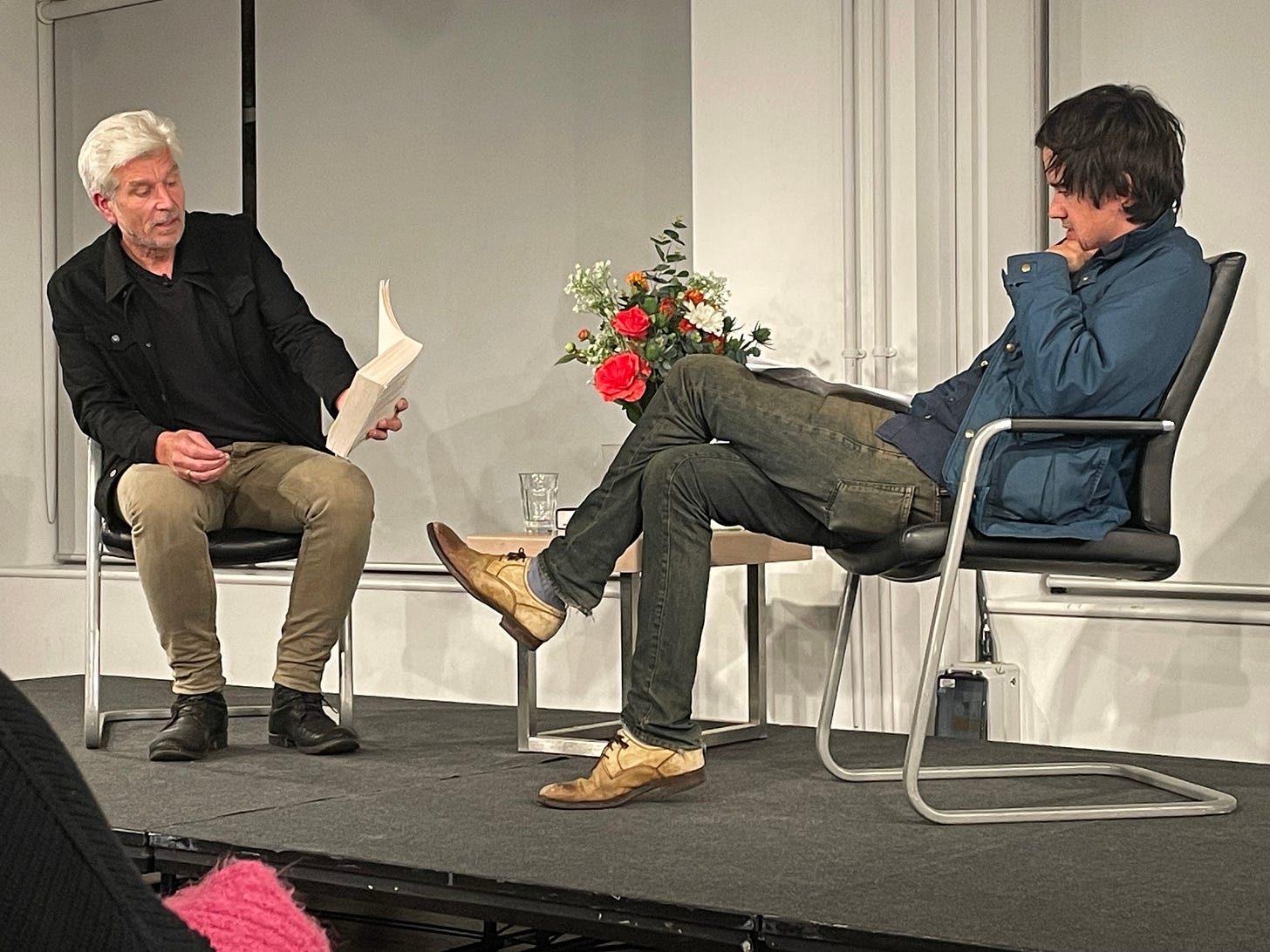Not a kind of copying
Some thoughts on novelistic influence
One of my favourite moments from the Karl Ove Knausgård event last night at Foyles in London was when he described reading Proust as a 26-year-old, “and then eighteen months later I could write.” He’d found his voice, in other words, though he didn’t make the connection with Proust’s influence at the time. He spoke about previously having read the Austrian writer Thomas Bernhard and (consciously or unconsciously) copying Bernhard’s writing style, with highly unsatisfactory results. Having found his own voice though, post-Proust, his writing flourished. He said it became a lot more like reading, as though he had somehow managed to step aside and wanted to find out, like any other reader, what would become of his own characters.
One conclusion to be drawn from this is that influences must become fully internalised before they can be owned; this takes time. Another is that influence ‘is not a kind of copying’ (in the words of the great Fredric Jameson, who died last week). It is, instead,
…permission unexpectedly received to do things in new ways, to broach new content, to tell stories by way of forms you never knew you were allowed to use.



